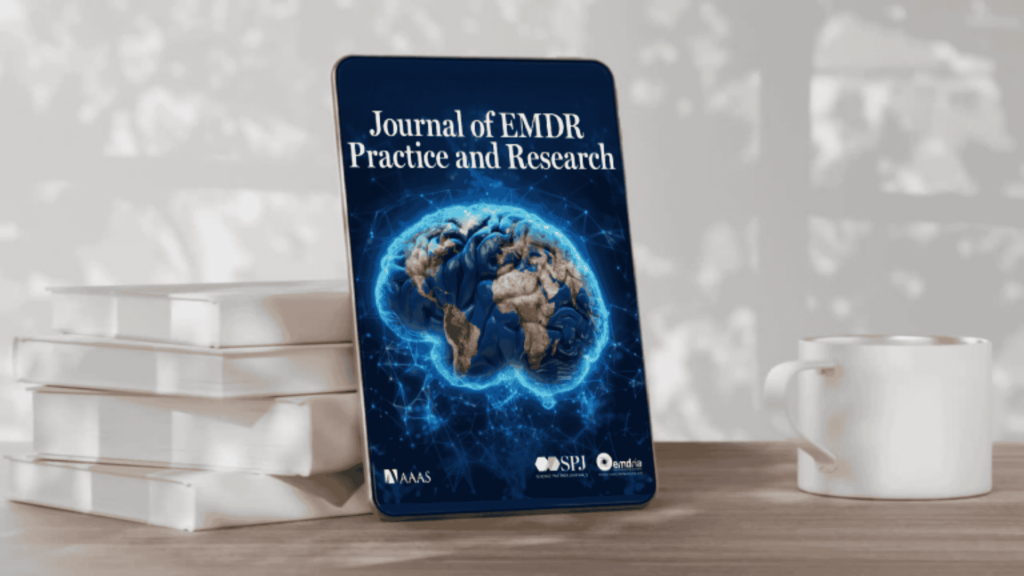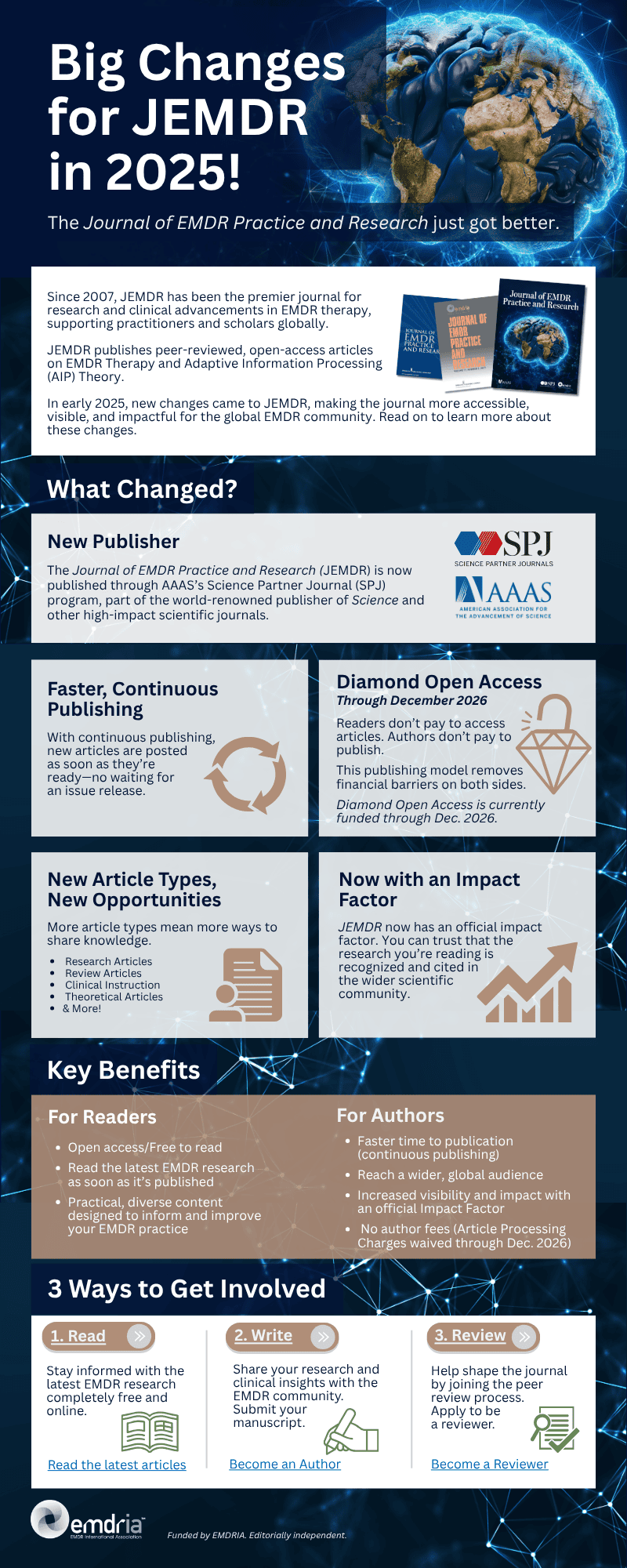About JEMDR®
The Journal of EMDR Practice and Research® (JEMDR) is a peer-reviewed publication devoted to integrative, state-of-the-art papers about EMDR therapy. It is a broadly conceived interdisciplinary journal that stimulates and communicates research and theory about EMDR therapy and its application to clinical practice. The journal publishes experimental studies; theoretical, review, and methodological articles; case studies; brief reports; and book reviews.
Established in July 2007 by EMDRIA™, the journal is published by The American Association for the Advancement of Science (AAAS). Beginning January 1, 2025, JEMDR® will be published by the Science Partner Journals (SPJ) program of AAAS, the world’s oldest and largest general science organization, serving 10 million people around the globe. AAAS publishes the renowned journal Science, among others.
- ISSN (print): 1933-3196
- ISSN (online): 1933-320X
JEMDR® is co-edited by Jenny Rydberg, a former special editor with JEMDR®, book editor, and associate editor of the European Journal of Trauma and Dissociation, and Derek Farrell, Ph.D., MBE, a principal lecturer in psychology at the University of Worcester, UK, where he directs a master’s program in EMDR therapy.
Read the Latest Articles
Stay informed with the latest research completely free and online.
Become an Author
Share your research and clinical insights with the EMDR community.
Become a Reviewer
Help shape the journal by joining the peer review process.
Recent Articles
Aplicación de la terapia EMDR a las conductas autolesivas (Journal of EMDR Practice and Research)
Las autolesiones suelen ser una estrategia de afrontamiento derivada del trauma, que pueden entenderse desde la perspectiva del modelo de…
Differential Effects of an Evolutionary-Based EMDR Therapy on Depression and Anxiety Symptoms: A Case Series Study (Journal of EMDR Practice and Research)
Treating depression downhill (TDD) was designed as a specific therapy for depression as a syndrome and later integrated with EMDR.
EMDR-Based Divorce Recovery Group: A Case Study (Journal of EMDR Practice and Research)
This case study investigated the effects of an EMDR-based divorce recovery group, consisting of four modalities.
See other resource types in the EMDRIA™ Library.



